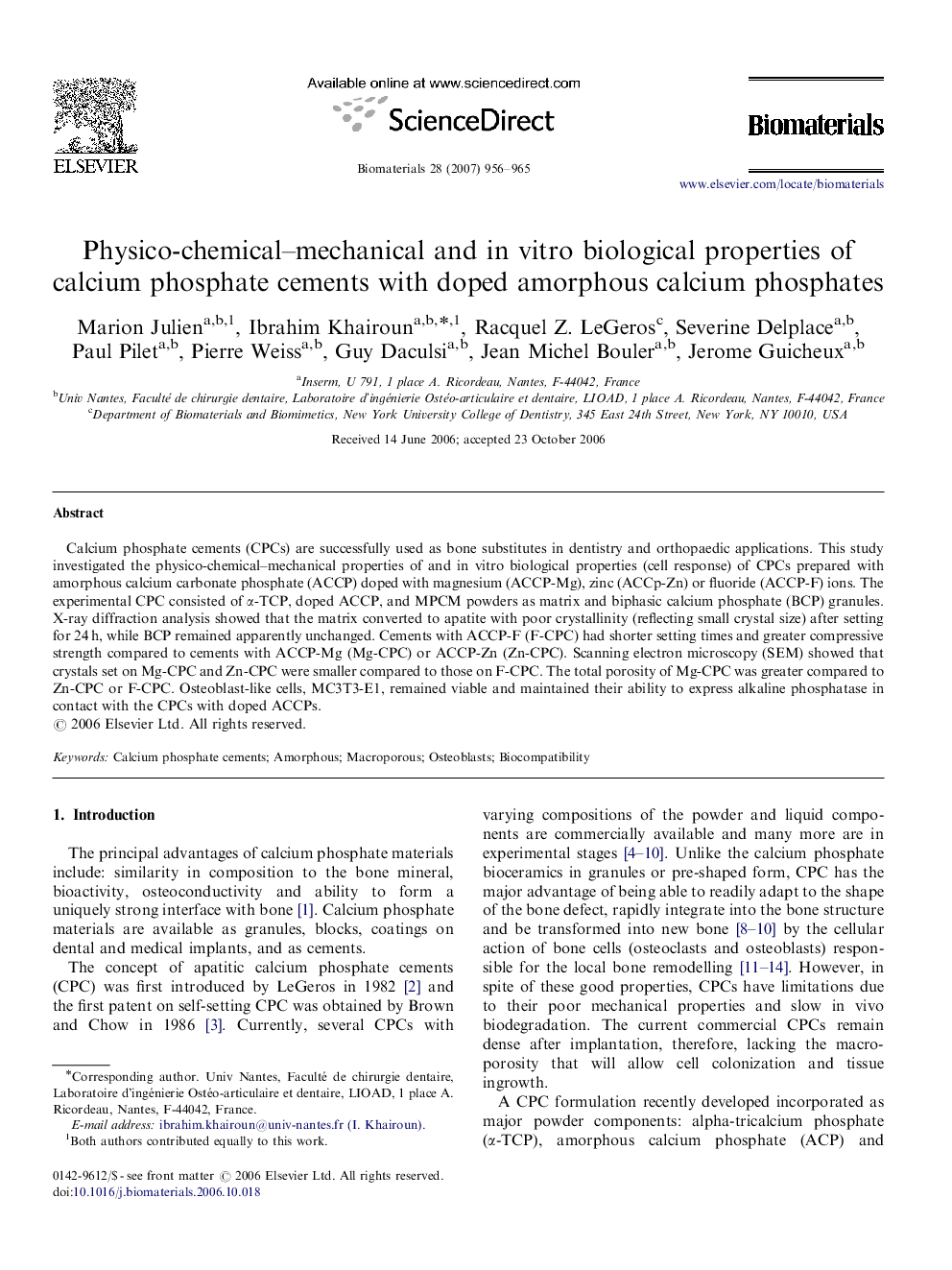| Article ID | Journal | Published Year | Pages | File Type |
|---|---|---|---|---|
| 10414 | Biomaterials | 2007 | 10 Pages |
Calcium phosphate cements (CPCs) are successfully used as bone substitutes in dentistry and orthopaedic applications. This study investigated the physico-chemical–mechanical properties of and in vitro biological properties (cell response) of CPCs prepared with amorphous calcium carbonate phosphate (ACCP) doped with magnesium (ACCP-Mg), zinc (ACCp-Zn) or fluoride (ACCP-F) ions. The experimental CPC consisted of α-TCP, doped ACCP, and MPCM powders as matrix and biphasic calcium phosphate (BCP) granules. X-ray diffraction analysis showed that the matrix converted to apatite with poor crystallinity (reflecting small crystal size) after setting for 24 h, while BCP remained apparently unchanged. Cements with ACCP-F (F-CPC) had shorter setting times and greater compressive strength compared to cements with ACCP-Mg (Mg-CPC) or ACCP-Zn (Zn-CPC). Scanning electron microscopy (SEM) showed that crystals set on Mg-CPC and Zn-CPC were smaller compared to those on F-CPC. The total porosity of Mg-CPC was greater compared to Zn-CPC or F-CPC. Osteoblast-like cells, MC3T3-E1, remained viable and maintained their ability to express alkaline phosphatase in contact with the CPCs with doped ACCPs.
